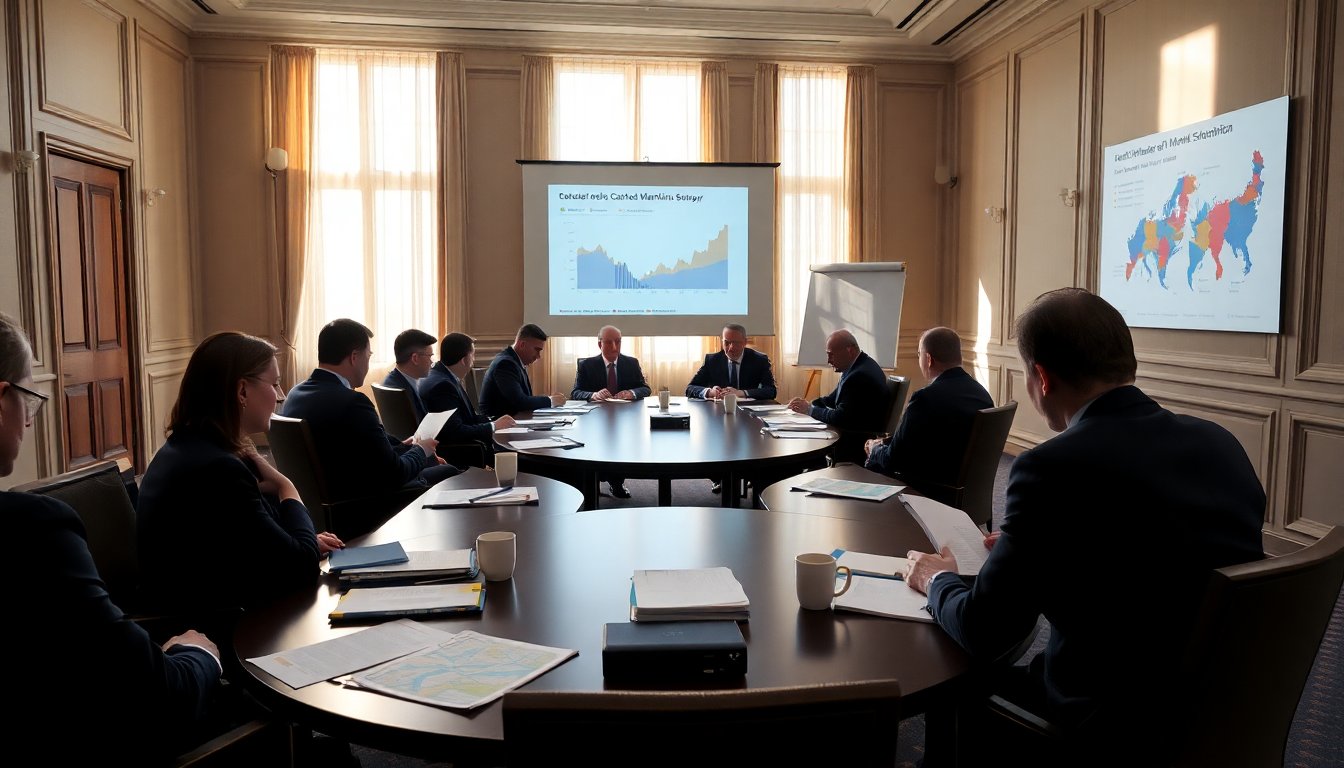Table of Contents
Discussions about Martin Selmayr, a key figure in European Union politics, have sparked speculation and concern among diplomats in Brussels. Selmayr, recognized for his influential and often controversial role within the EU, is reportedly being considered for a senior position in the European External Action Service (EEAS), the EU’s foreign affairs division. His previous tenure has significantly impacted the political landscape, prompting fears about the consequences of his potential return.
Selmayr’s political resurgence
Serving as the EU ambassador to the Vatican, Martin Selmayr is considering a pivotal move back to Brussels. Reports suggest he has initiated talks with Kaja Kallas, the EU’s chief diplomat, about this potential role. This situation has prompted concern among diplomats, who are apprehensive about how his return might influence current power dynamics within the EU.
Concerns about diplomatic relations
Martin Selmayr’s tenure as chief of staff to former Commission President Jean-Claude Juncker is marked by a firm control of power and a reputation for being a divisive figure. His elevation to the role of secretary-general in 2018 faced scrutiny, particularly due to perceived opacity in the selection process. As he contemplates this latest opportunity, concerns emerge regarding the potential for heightened tensions between the European Commission and the European External Action Service (EEAS), as well as with individual member states.
Opposition and strategic maneuvers
To counter the potential return of Martin Selmayr, Ursula von der Leyen, the President of the European Commission, is reportedly considering a different role for him as a special envoy for religious freedom. This approach aims to keep Selmayr away from the complex political dynamics in Brussels, as officials worry that his influence could upset the fragile balance within the European Union’s diplomatic framework.
However, Selmayr’s supporters contend that his extensive network and experience render him a valuable asset for the European External Action Service (EEAS). Many seasoned diplomats within the organization, however, express doubts. They note that Selmayr’s recent diplomatic experience is primarily linked to his time at the Vatican, prompting skepticism about whether the EEAS lacks experienced diplomats capable of effectively filling these roles.
Potential implications for the EU
The return of Selmayr may resemble the narrative of the Count of Monte Cristo, as one anonymous diplomat has pointed out. His re-emergence, combined with a strong network and assertive strategies, could establish a significant influence within the European External Action Service (EEAS). This development raises concerns about potential conflicts with other members of the Brussels diplomatic community. The implications for inter-institutional relationships and the overall balance of power within the EU are increasingly uncertain.
Strategic positioning within the EU
The redesign of the deputy secretary-general position aims to enhance connections with EU member states, particularly through regular ambassador meetings. However, the appointment of Selmayr, viewed by some as a divisive figure, presents challenges. While there is consensus that the European External Action Service (EEAS) must assert itself more decisively, many question whether Selmayr’s leadership is the optimal path to achieving this objective.
Despite his controversial background, Selmayr’s influence within the European bureaucratic framework remains substantial. His re-emergence may provoke existing tensions among career diplomats, who might perceive his appointment as a challenge to their expertise and authority. In an organization already struggling with its identity and mission, Selmayr’s return could further complicate the EEAS’s ability to operate cohesively.
Ongoing discussions among EU officials regarding Selmayr’s potential return underscore the intricate dynamics of power within the European Union. The outcome of these talks is expected to significantly influence the future of EU diplomacy and international relations.


